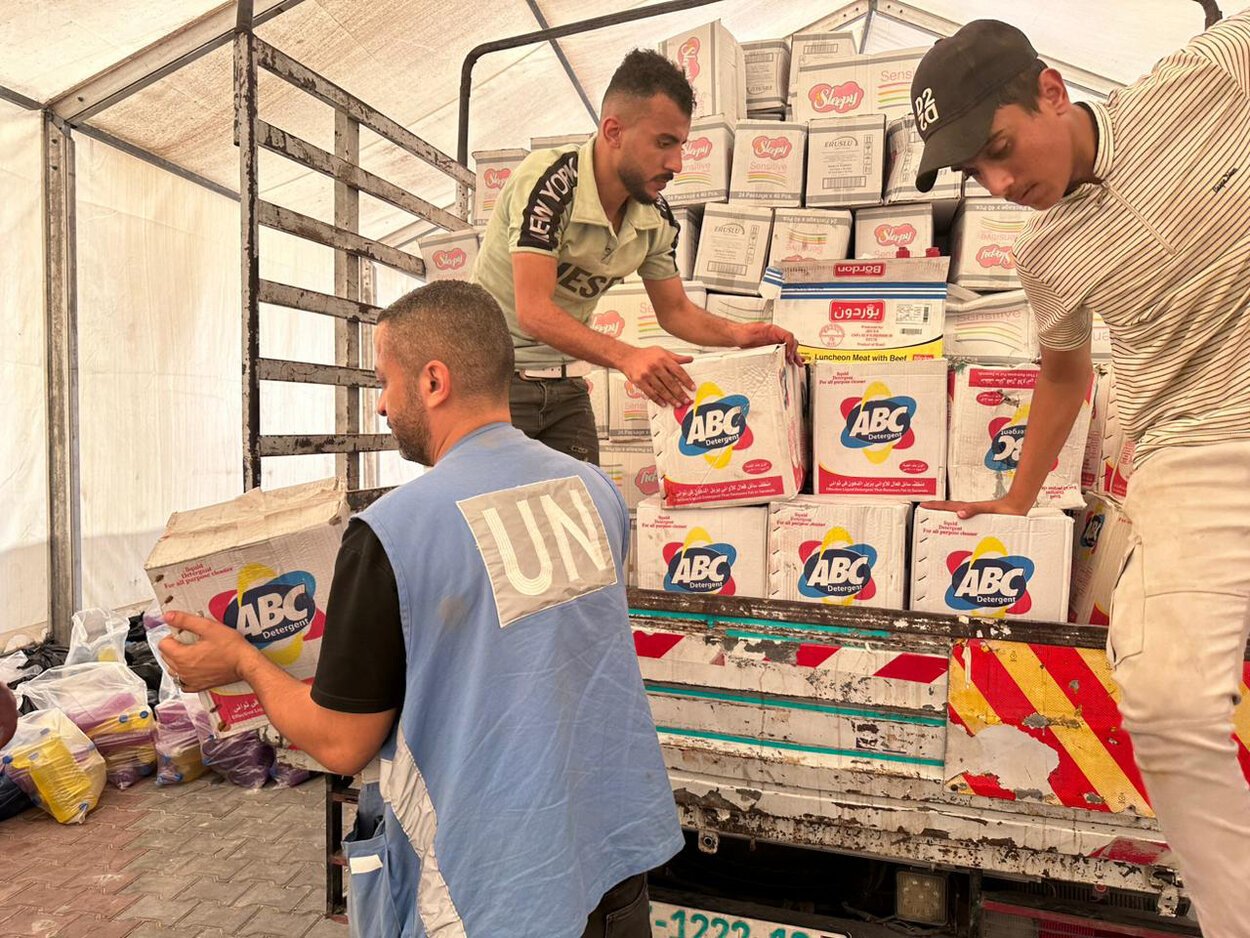UN relief chief: The crisis in Israel and the Occupied Palestinian Territory is a global crisis
Statement by Martin Griffiths, Under-Secretary-General for Humanitarian Affairs and Emergency Relief Coordinator, following his two-day visit to Israel and the Occupied Palestinian Territory
New York, 1 November 2023
Scores of civilians have reportedly been killed in Gaza following recent attacks on the Jabalia refugee camp. This is just the latest atrocity to befall the people of Gaza where the fighting has entered an even more terrifying phase, with increasingly dreadful humanitarian consequences.
October 7th and its aftermath will leave indelible scars on the lives of millions.
In Israel, a nation was left in shock after the brutal and graphic killing of some 1,400 people. The families of more than 200 hostages continue to live in anguish, unsure about the fate, wellbeing and whereabouts of their loved ones.
In Gaza, women, children and men are being starved, traumatized and bombed to death. They have lost all faith in humanity and all hope of a future. Their despair is palpable.
In the West Bank, the death toll is rising. Violence and the closure of checkpoints mean that people cannot access food, jobs, health care and other essential services.
Meanwhile, the world seems unable, or unwilling, to act.
This cannot go on. We need a step change.
We need the hostages to be released immediately and unconditionally.
We need to be able to provide the essentials for survival – particularly water, food, medicine and fuel – safely, immediately and at scale. The more than 200 trucks which have crossed into Gaza so far following painstaking negotiations offer some relief but are nowhere near enough.
We need the warring parties to agree to pauses in the fighting. This is the only viable option to get relief items into Gaza right now. Repeated humanitarian pauses would allow us to provide more aid to those in need across Gaza, thus alleviating people’s suffering and reducing the risk of civil disorder. Such pauses would also allow the sick and wounded to seek medical care and those who wish to flee to do so safely.
Put simply, we need the parties to respect their obligations under international humanitarian law, including by taking constant care in the conduct of military operations to spare civilians and civilian objects.
And we need those with influence to use that influence to ensure respect for the rules of war, deescalate the conflict and avoid a spillover.
Failure to act now will have consequences far beyond the region, because this is a global crisis.





